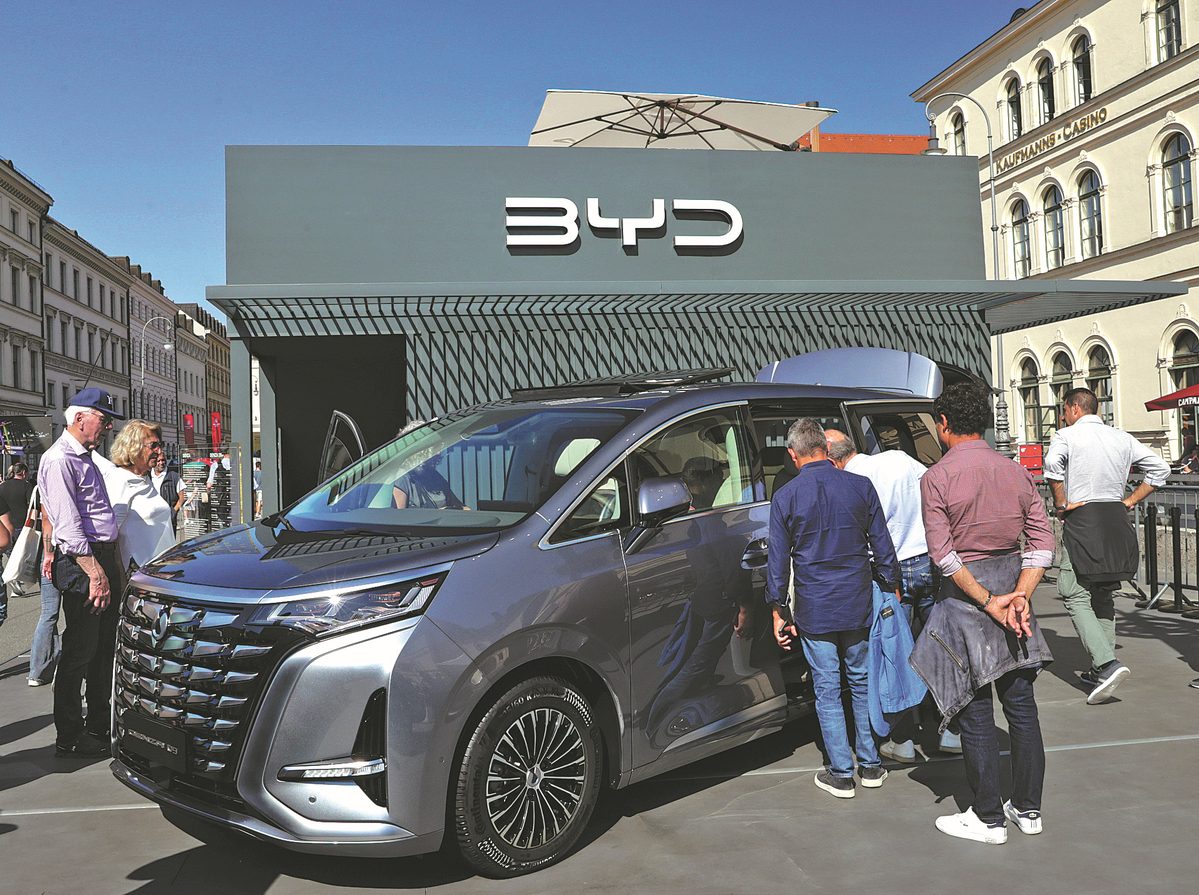Concerns over anti-subsidy inquiry by EU


Alan Beattie, a senior business writer at the Financial Times, wrote in an op-ed column published in late September that the EU's threatened anti-subsidy duties are an admission that European companies and governments have been slow to innovate. He countered that Germany's car industry doesn't lack government backing, adding that Volkswagen in particular is a partly State-owned enterprise through the stake owned by the German state of Lower Saxony.
Beattie also said the EU's problem with electric vehicles has not primarily been the opening of the European market.
"These poorly targeted and possibly counterproductive trade restrictions, which risk holding back green transition by making EVs more expensive, are not a substitute for creating an environment in which European companies can compete," he wrote.
"If the commission genuinely wanted to give European industry breathing space, it would have gone for a 'safeguard measure', which gives temporary protection against all imports, rather than singling out China."
The European Commission has said China's share of EVs sold in Europe has risen to 8 percent and could reach 15 percent in 2025.However, the single largest source of made-in-China EV imports are the Tesla cars made in the US company's plant in Shanghai, not the indigenous Chinese brands, which have relatively small footholds.
Oliver Blume, chairman of the board of management at Volkswagen AG, the largest automaker in Europe, said in September that strong competition sends consumers positive signals.
"When you have strong competition, you have to improve yourself; you can't rest on what you have achieved," said Blume. "I am a supporter of worldwide trade, because that is a big advantage for all countries to bring wealth, to improve the economic situation of each country. That is, in the end, a benefit for all people. Therefore, competition is welcomed from my point of view."
China-made electric vehicles are gaining popularity overseas, and Paul Gong, a UBS analyst, said they have a cost advantage, which is the result of not only production in China. UBS' recent disassembling of BYD's electric Seal showed the vehicle is 15 percent lower in terms of cost compared with Tesla's Model 3, and around 35 percent lower than Volkswagen's electric vehicles.
"Even if Chinese carmakers had produced their vehicles in Europe, their cost would be around a quarter lower than their European rivals," said Gong.


















